Every week, we update this list with new meetings, awards, scholarships and events to help you advance your career. If you’d like us to feature something that you’re offering to the bioscience community, email us with the subject line “For calendar.” ASBMB members’ offerings take priority, and we do not promote products/services. Learn how to advertise in ASBMB Today.
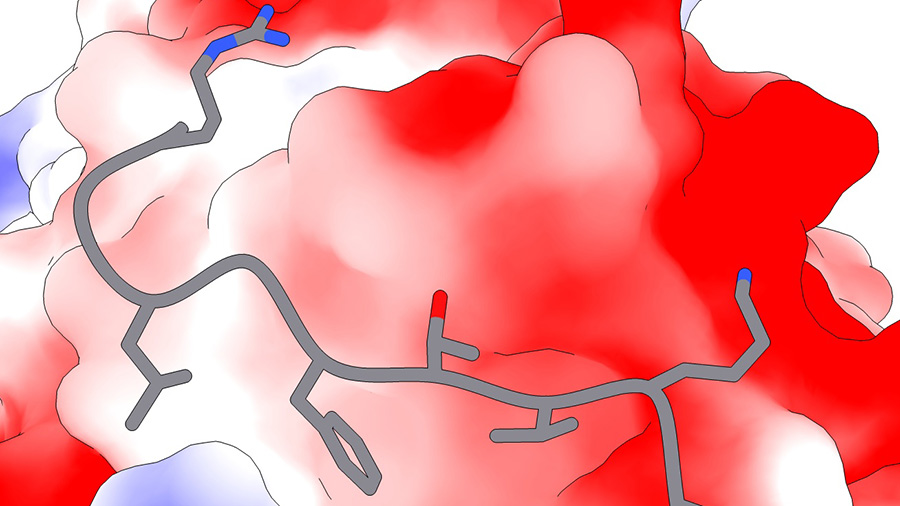
Deadline extended: Abstracts for ASBMB’s conference on motifs, modules and networks are now due May 15
Present your work at the ASBMB conference on the assembly and organization of regulatory signaling systems to be held July 11–14 in Potomac, Md. The organizers are Wolfgang Peti of the University of Connecticut Health Center, Benjamin Turk of the Yale School of Medicine and Arminja Kettenbach of Dartmouth Geisel School of Medicine. Abstracts are due May 15. Learn more.
May 15: PhRMA Foundation award applications due
The PhRMA Foundation is accepting letters of intent for its 2024 Drug Delivery and Drug Discovery Targets and Pathways fellowships and grants. Predoctoral awards are worth $30,000 per year for two years; postdoctoral awards are worth $60,000 per year for two years; and faculty starter grants are worth $100,000 for one year. Learn more.
May 17: Sign up for computational cell biology workshop
The 24th Annual Workshop on Computational Cell Biology will take place June 26–28 at the Center for Cell Analysis & Modeling at UConn Health in Farmington, Connecticut. The course will begin with introductory lessons on modeling techniques (ODE, PDE, stochastic, spatial stochastic, agent- and rule-based modeling) using VCell, COPASI and SpringSalad. The remaining time will consist of continuous interactive hands-on sessions using software to design your models and perform simulations. There is no registration fee, but you have to be admitted. Email the following to Michael Blinov by May 17: your name, institution, lab head (if you are a student), and a one- to two-page proposal explaining how you feel VCell, COPASI and/or SpringSalad will help your research project. Meals will be provided, and limited travel funds are available to promote diversity. Learn more.
May 17–18: NASEM workshop on advancing antiracism, DEI in STEMM organizations
The National Academies of Sciences, Engineering, and Medicine is hosting a two-day hybrid workshop titled “Beyond Broadening Participation: Research to Progress to Impact.” During the event, which will focus on issues raised by the recently released report “Advancing Antiracism, Diversity, Equity, and Inclusion in STEMM Organizations,” researchers and practitioners will speak on the ways that research can inform practice, evaluation can measure progress, and how the community interested in antiracism, diversity, equity, and inclusion can increase a sense of belonging in learning and working environments. Learn more.
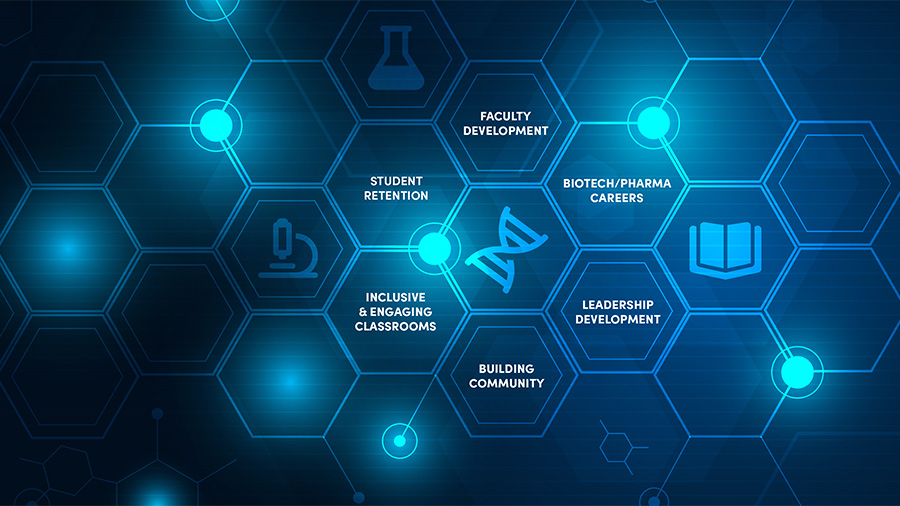
May 23: Abstracts due for ASBMB meeting on undergrad education
Join us for a in-person, interactive education-focused ASBMB meeting to learn about engaging approaches to supporting students and faculty in biochemistry and molecular biology. Reconnect with peers, meet new colleagues and increase your network of education-minded professionals while exploring Boston. The early registration and abstract-submission deadline is May 23. The regular registration deadline is June 27. ASBMB Today recently talked with the event’s organizers about attendees can expect. Read the interview. Register.

May 24: ASBMB Lipid Research Division Seminar Series presentations on supercool lipids (and proteins condensates too)
The ASBMB Lipid Research Division features the work of young investigators at noon Eastern on Wednesdays. If you are interested in presenting, please contact John Burke. Register once to access the whole series.
This month’s presentations are: “Cholesterol esters form supercooled lipid droplets whose nucleation is facilitated by triacylglycerols” by Lauri Vanharanta at the University of Helsinki and Calvin Dumesnil at the French National Centre for Scientific Research and “Coupling of protein condensates to ordered lipid domains determines functional membrane organization” by Hong-Yin Wang at the University of Virginia.
May 24: Making a postdoc stand out for industry
Scismic is hosting a free webinar at 2 p.m. Eastern on May 24 about the value of doing a postdoc if you are interested in a career in industry. Learn how to pitch to employers how what you learned during your postdoc makes you a strong candidate for the job. If you can’t make it to the webinar, register because you’ll be sent a recording. Learn more.
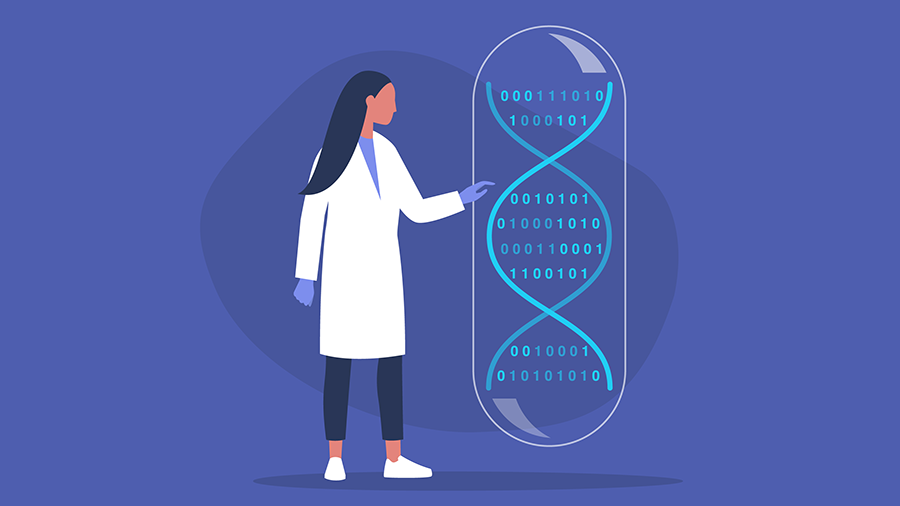
May 25: Women in biotech and pharma
Many scientists are interested in pursuing careers in biotech and pharma when they complete their academic training in biochemistry or molecular biology. However, they often have limited exposure to those environments during their education. At this free webinar, we’ll invite four women to share reflections and perspectives on navigating careers in those sectors. Our discussion will incorporate career advice and reflections on how gender dynamics may play out in different environments. We will also reserve time for panelists to answer attendees’ questions. Register.
May 30: Symposium on LGBTQ+ inclusion in STEM
Northwestern University’s Institute for Sexual & Gender Minority Health and the American Association for the Advancement of Science are holding a symposium for policymakers and members of the scientific community titled “Inclusion and advancement of LGBTQ+ people in STEM fields” at 7:30 p.m. Eastern on May 30. The symposium will cover the challenges and disparities experienced by members of the LGBTQ+ community in STEM, how mentorship promotes inclusivity and diversity, how to navigate identity and career simultaneously and relevant federal policies. Register.
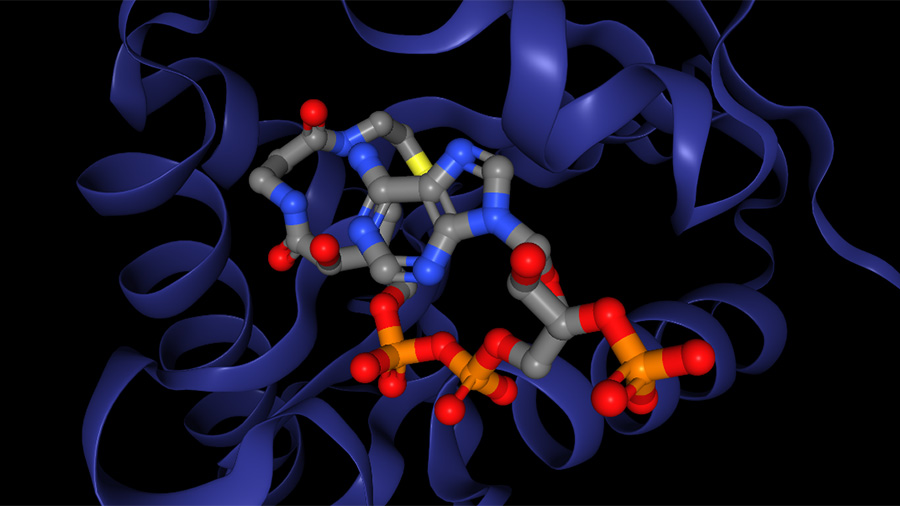
June 20: Abstracts due for our CoA and CoA-derivatives conference
Present your work at an ASBMB conference on CoA and CoA-derivatives Aug. 16–18 at the University of Wisconsin–Madison. The organizers are Luigi Puglielli at UW–Madison, Suzanne Jackowski at St. Jude Children’s Research Hospital and James Ntambi at UW–Madison. The speaker list is available. Abstracts are due June 20. Learn more.
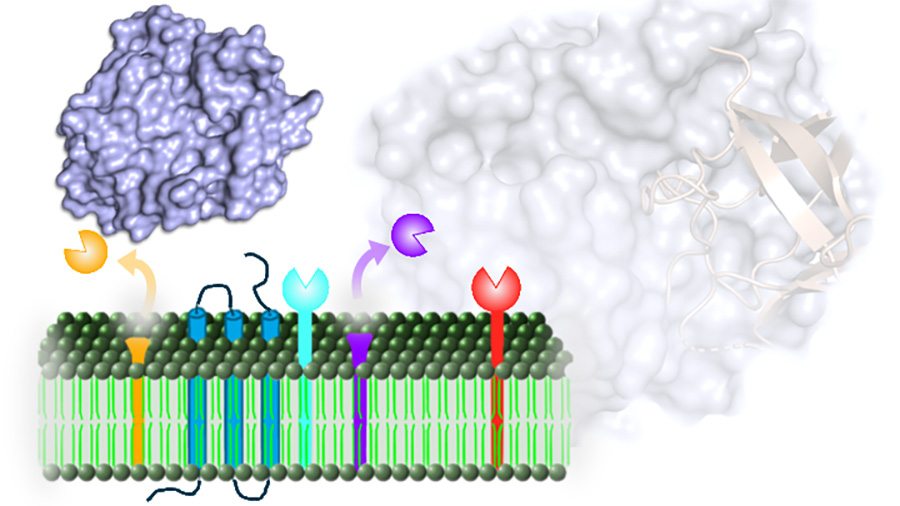
Oct. 28–29: Save the date for our serine proteases virtual conference
This ASBMB virtual conference will focus on membrane-anchored serine proteases and other serine proteases with restricted activities in the pericellular environment relevant to cellular signaling, behavior and protease activity in human disease. The conference traditionally brings together an international group of researchers in the field of serine proteases and pericellular proteolysis. It is rooted in providing an accessible forum for researchers to present their latest findings and technologies and to facilitate an environment for idea exchange, networking and building scientific collaborations. The conference was founded on the principle of providing an intimate venue for junior investigators — especially postdocs and graduate students — to meet with experts in the field from academia and industry to build interactions crucial to future career development. Learn more.
IUBMB MilliporeSigma fellowship
The International Union of Biochemistry and Molecular Biology welcomes applications year-round for its MilliporeSigma Virtual Meetings and Courses Fellowships. Grad students and postdocs from countries that are associate or full members of the IUBMB may apply for funding to present their work at virtual events in the IUBMB region. Learn how to apply.
IUBMB relocation support for displaced trainees
The International Union of Biochemistry and Molecular Biology is offering $2,000 to graduate students and postdocs displaced from their labs as a result of natural disaster, war or “other events beyond their control that interrupt their training.” The money is for travel and settling in. Learn more and spread the word to those who could use assistance.

Call for virtual scientific event proposals
The ASBMB provides members with a virtual platform to share scientific research and accomplishments and to discuss emerging topics and technologies with the BMB community.
The ASBMB will manage the technical aspects, market the event to tens of thousands of contacts and present the digital event live to a remote audience. Additional tools such as polling, Q&A, breakout rooms and post event Twitter chats may be used to facilitate maximum engagement.
Seminars are typically one to two hours long. A workshop or conference might be longer and even span several days.
Prospective organizers may submit proposals at any time. Decisions are usually made within four to six weeks.
Propose an event.
Credit: Source link
